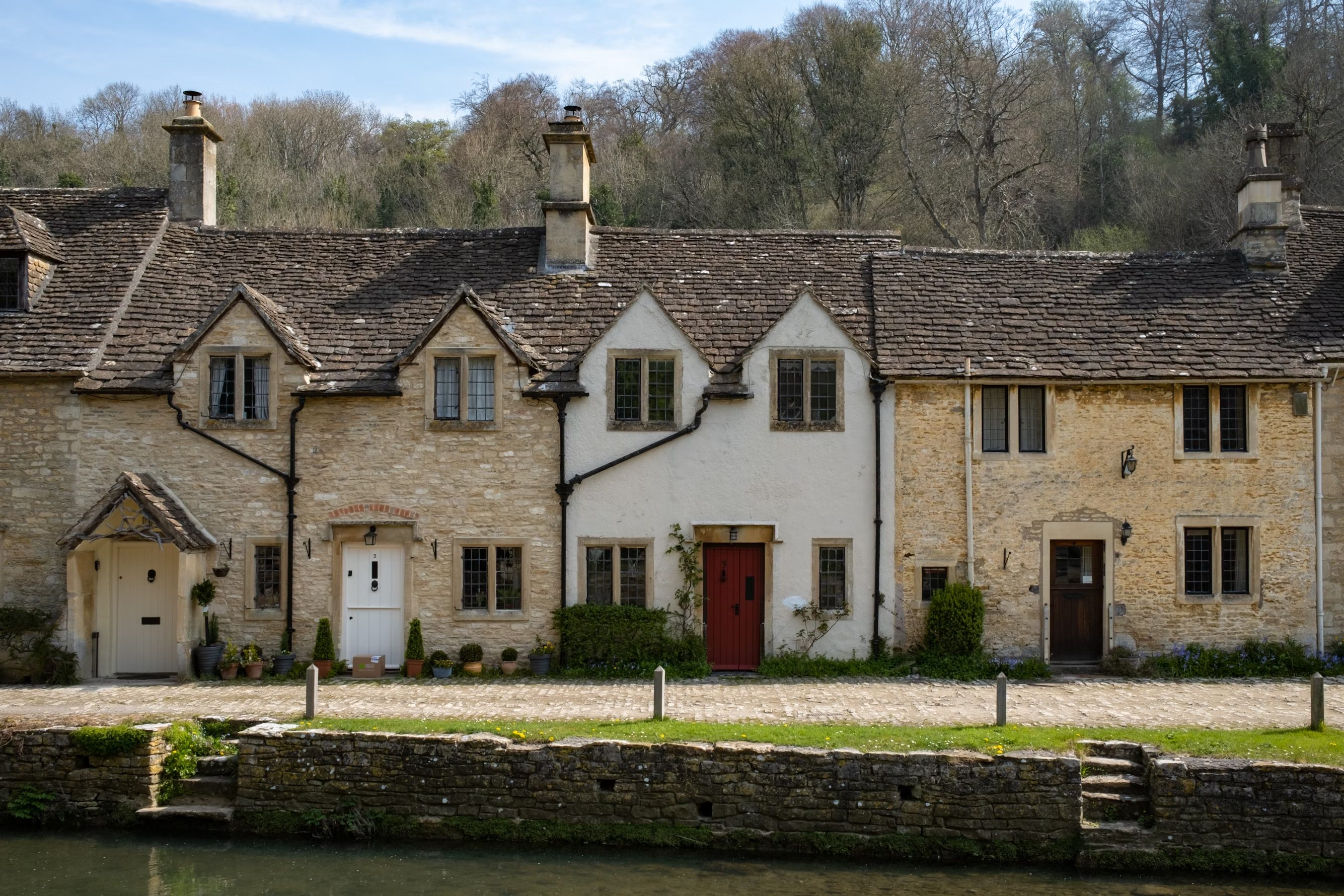
Updated: Oct 24th, 2025
26 Questions to Ask When Viewing a House
Buying a house is likely one of the biggest financial decisions you will ever make, and viewing a property is your opportunity to dig deeper into the property and also uncover any potential red flags before you commit.
Whether you are a first-time buyer or moving up the ladder, knowing the right questions to ask when viewing a house can save you time, money and stress later down the line. That is why our experts have compiled your ultimate guide to the key questions to ask during a house viewing, and why each one matters.
Do not forget to download your free property viewing checklist, and take it with you to house viewings so that you can scribble down notes as you go.
Download Your Free Property Viewing Checklist PDF

Key Questions to Ask When Buying a House
Our property experts have collated 26 of the most important questions to ask an estate agent or seller to help you make your decision.
Questions about the seller
- Why is the seller selling?
Our experts’ top question to ask when viewing a property is why the current owner is selling – it could save you thousands. If you are lucky, the estate agent may allude to the seller’s reasoning, or they may simply tell you outright. Whether they are downsizing, upsizing, going through a divorce, selling an inherited property or relocating for work, for instance, this kind of insight can give you real leverage when it comes to negotiations. Is the seller looking for a quick sale? This could mean they are open to a lower offer, if it means a faster house sale.
- Is the seller in a chain?
If the seller is in a chain, you are more likely to face delays. A chain-free seller can often move faster, which could work in your favour if you are looking for a smooth and quick transaction.
- Is the seller looking for a quick sale or are they flexible with timelines?
Knowing the seller’s urgency to sell helps you tailor your offer. A seller chasing a fast sale may accept a lower price if you are in a strong position and ready to move quickly.
Buy a Property with Auction House London
Questions about finances
- What is the minimum price the seller will accept?
Even if you do not get a direct answer, it is always worth asking this question when viewing a property, as it could save you time, guesswork and ultimately, money. If you do not get a figure as a response, sellers or estate agents may give an indication, particularly if the property has been on the market for a while. This information can help you gauge how much negotiating room there might be and whether a lower offer has the chance of being accepted.
- Have there been any offers?
Estate agents must tell you if there have been other offers, if you ask, so never be afraid to ask this question. However, they do not have to tell you how much the offers were. Knowing if there have been previous offers – and whether they were rejected – can offer insight into the seller’s expectations.
- How much is the average sale price for similar properties in the area?
You can research this yourself on property websites before the viewing, but the estate agent should also have recent comparable sales data. This helps you understand whether the asking price is fair. - Has the property ever been down-valued by a surveyor or lender?
A down-valuation happens when a mortgage lender values the property at less than the agreed sale price. This can derail a sale or force renegotiation. If it has happened before, it is worth spending your time understanding why, as it could point to pricing issues or hidden defects. This is a rare question for buyers to ask, but a smart one.

Questions about the property itself
- How long has the property been on the market?
This is a great starting point. If the property has been listed for a long time, it could indicate a problem with the house, price or location. Alternatively, it might suggest that there could be room for negotiation. Always ask this early on – it can be a powerful bargaining tool.
- Has the house always been listed at the current price?
A property that has been reduced in price might indicate a lack of interest, an overvaluation at the start, or perhaps a seller who is in a rush to sell. Most property selling sites will show price history, but it is certainly worth asking if the seller has used multiple selling sites, for example. If there has been a reduction, it may be a good time to negotiate on a price.
- Is the property freehold or leasehold?
The tenure of a property – freehold or leasehold – affects what you legally own. If the tenure of a property is not listed in the details when you are considering viewing and buying, make sure to ask; tenure affects what you own, what you pay and how much control you have over the property. Freehold means you own both the property and the land it is built on outright, whereas leasehold means you own the property for a fixed period, but not the land it is on. This is especially important with flats, as most flats will be leasehold. You can also check the property tenure and who owns the freehold ahead of time, which comes with a small fee.
- Are there any restrictive covenants or shared responsibilities (e.g. shared driveways)?
Restrictive covenants can limit how you use your property – for example, prohibiting extensions or exterior changes. Shared driveways or shared garden maintenance responsibilities can also be clarified when you are viewing properties, to save any disputes later down the line.
- Have any major renovations been made?
Recent renovations can add value to the property, or uncover questions about quality. Renovations which caused structural movement can also lead to bigger issues which will later be flagged in your survey. Knowing exactly what was done and when is important. Ask for proof of work where possible. - How many owners has the property had in the last five to ten years?
A high turnover of owners could suggest issues – either with the house itself, the surrounding area, the neighbours, or something else. If neighbours are a problem, for instance, if the seller has filed any formal complaints against the neighbours, they legally have to declare this if asked and disclose them on the TA6 form. However, the TA6 form will likely come later on in the buying process, so asking these sorts of questions early on in your buying journey can save a lot of potential trouble down the line.
- How old is the property?
Older homes often have bags of character, but are likely to require more maintenance. If the house you are viewing is not a new build, it is a good idea to ask how recently things like guttering, drains, wiring, plumbing and insulation were renewed. - Are there any known issues with damp, subsidence, or flooding?
Issues such as damp, subsidence and flooding can be serious and costly to fix. That is why it is a good idea to always ask directly if the property is (or ever has been) affected by these things. You can look for signs during viewings too, like damp marks or cracks on the walls.
- What fixtures and fittings are included in the sale, if any?
Do not assume that fixtures, fittings and white goods are included in the sale. It is best to ask to clarify exactly what you are buying, ideally at the viewing stage, to avoid any surprises later down the line.
- What is the outcome of the Energy Performance Certificate (EPC)?
An EPC gives insight into a home’s energy efficiency. It outlines whether the property has insulation, double glazing or lagged pipes, and can also give an idea of potential energy bill costs. It is a good idea to ask when improvements were made and what the current EPC rating is. If the information is not readily available when you ask, you can find an energy certificate here.
- Has there ever been a presence of Japanese knotweed?
Japanese knotweed is an invasive plant that can cause serious damage to house foundations and in extreme cases, make a property unmortgageable. Sellers are legally required to declare Japanese knotweed in their TA6 form, but it is a smart move to ask directly during the viewing stage, to save finding out later on in the process.
- What is the phone / WiFi signal like in the property?
Reliable connectivity is crucial for most people in this modern age, but particularly if you work from home. While viewing the house, you can check your phone signal in various rooms, and make sure to ask what broadband providers are available (and which have the best performance) in the area.
- What is the water pressure like?
You are well within your rights to ask to turn on taps and flush toilets during the viewing. Not only do you want strong water pressure for a well functioning shower and toilet, but low water pressure can be an indication of plumbing issues or ageing infrastructure, which can be costly to fix.
- How much is council tax, and estimated bills?
Council tax bands can vary significantly between neighbouring properties. Ask what band the property is in and how much it is to ensure that you can factor this into your budgeting when you come to put an offer in for the property. You could also ask alongside this for an idea of monthly bills, to understand the ongoing costs of living there and help you make your decision.
Download Your Free Property Viewing Checklist

Questions about the local area and surroundings
- What is the local area and neighbours like?
When viewing a house, do not forget to ask about the local area and the neighbours. The estate agent can usually give a good overview of nearby amenities, such as shops, schools, public transport links, parks and other community features – all of which can significantly impact your day-to-day life and the property’s long-term value. When it comes to neighbours, it is worth asking the seller directly. While they may not openly share any issues, so as not to deter you, it is still helpful to raise the question. We advise walking around the neighbourhood at different times of the day and chatting with potential future neighbours if possible, to get a true picture. Plus, as mentioned above, if there has ever been a legal issue raised against a neighbour, it will be declared on the TA6 form. - Is there on-street parking, a garage, or a driveway?
Parking arrangements can greatly influence your experience living in a property, especially in busy areas. It can also impact your motor insurance costs. Ask whether the house has a driveway, garage or allocated parking. If it does not, ask if on-street parking requires a permit and what the costs are associated with this. Our experts’ top tip is to visit the street at different times of day to see how easy parking is in practice.
- Is there planning permission for any extensions or major works planned?
The estate agent may not be aware, but it is still worth asking (and continuing to ask until they find the answer) if there are any major developments or planning permission planned nearby. Developments such as these can significantly impact the desirability of the area, and therefore the house prices – which is why it is so important to ask these sorts of questions when viewing houses. If you do not get the answers you need, check with the local council’s planning portal for the most up-to-date information. - What are the local schools rated by Ofsted?
If you have children, or are planning to have children in the future, schools in the local catchment area will be a major consideration. Even if you do not have children, being near a highly-rated school can increase a property’s long-term value. When viewing, ask which schools are nearby and what their latest Ofsted ratings are. You can find the latest school Ofsted reports for England here.
- Is the property in a conservation area?
Conservation areas are designated to protect historical or architectural interest, often featuring period properties and picturesque surroundings. However, be aware that there are strict rules on renovations and alterations, including limits on window replacements, extensions and even paint colours. Not abiding to these rules can lead to significant fines, so it is important to ask if the house you are considering is in a conservation area.

Asking the right questions when viewing a house is not just about spotting problems – it is about making an informed decision on what is likely one of the biggest purchases you will ever make.
It is important to view properties with an open mind. Just because the property has been on the market a while, for instance, does not necessarily mean that it is a red flag and to be avoided. It could be for any number of reasons – such as the seller’s previous offer falling through, or perhaps they were victim to gazundering and decided to put it back on the market.
That being said, it is of course important to approach home buying with caution. Estate agents will usually give you answers to the best of their knowledge, but where possible, get a second opinion if you are in doubt when it comes to any of their answers. It can also be a good idea to ask to speak directly to the sellers themselves, as they are likely to give honest answers from personal experiences of living in the property.
Do not be afraid to follow up and ask for details in writing, and discuss any answers with your solicitor on issues that raise concern.

By keeping this property viewing checklist in mind – and taking a copy with you to house viewings – you will be better equipped to find a home that is not just perfect for you, but is a worthwhile investment.
If you are looking to buy a property and are not yet sure which route to go down, you could consider an auction. Buying a property at auction can be a great opportunity, offering potentially lower prices and a faster purchase process. Read our guide on buying houses at auction for all you need to know.
You can also view our current lots for auction here.

Andrew Binstock
Andrew is widely considered to be one of the best auctioneers in the UK with his energetic and passionate style combined with his ability to entertain the audience and his refusal to bring the gavel down until the very last pound has been extracted.
